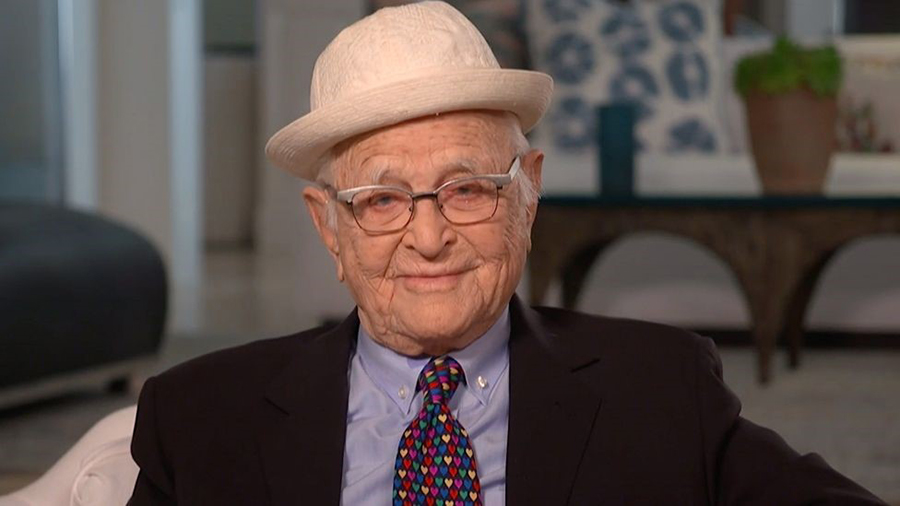(Reuters) – Producer-writer Norman Lear, whose groundbreaking hit comedies such as “All in the Family” and “Maude” addressed race, abortion and other social issues rarely seen previously on U.S. television, died on Tuesday, at the age of 101, his family said.
Lear, one of the most influential people in television, died at his Los Angeles home of natural causes, “surrounded by his family as we told stories and sang songs until the very end,” the family said on Facebook on Wednesday.
Lear, who won six Emmy Awards for his work in television, was known for his campaigning for liberal causes, including voting rights, and worked well into his 90s.
In addition to “All in the Family” and “Maude,” Lear dominated American TV screens in the 1970s and ’80s with the situation comedies “Sanford and Son,” “The Jeffersons,” and the soap-opera spoof “Mary Hartman, Mary Hartman.” At one point in the 1970s, Lear had eight shows on the air with an estimated 120 million viewers, Time magazine said.
By drawing material from social themes of the time, Lear’s shows made network executives nervous because they had depth and an air of controversy.
“For him to say that he didn’t have an impact on not only television but society is … a little too humble,” said Rob Reiner, who had a co-starring role on “All in the Family” before becoming a film director.
“I loved Norman Lear with all my heart,” Reiner said on the X social media platform after news of his death. “He was my second father.”
Lear and production partner Bud Yorkin put “All in the Family” on the air in January 1971, and the show would go on to win four Emmys for best comedy in its nine seasons. It was based on a British show, “Til Death Do Us Part,” and gave U.S. television one of its most memorable and controversial characters: Archie Bunker.
Veteran actor Carroll O’Connor portrayed Archie as a crude, loud, blue-collar New Yorker who spouted racist, homophobic and antisemitic comments. He was cast against a scatterbrained wife he called “Dingbat,” a liberal daughter and an even more liberal son-in-law he referred to as “Meathead,” played by Reiner.
“All in the Family” was the top-rated show on U.S. television for five straight years, according to CBS, and TV Guide ranked it fourth on its list of television’s all-time greatest shows.
Born on July 27, 1922 in New Haven, Connecticut, Norman Milton Lear’s most lasting creation was partly based on fact. Many of the harsh words that came out of Archie’s mouth had first been spoken by Lear’s own father, Herman Lear, who went to prison for selling fake bonds, and frequently told his wife to “stifle” herself and called his son “the laziest white kid I ever saw.”
“I grew up in a family that lived at the top of its lungs and the ends of its nerves,” Lear told Esquire magazine.
Some critics said the Archie Bunker character put a laughing face on bigotry, but Lear said it only pointed to the complexity of humanity.
A year after “All in the Family” started, Lear aired “Maude,” a spin-off that starred Bea Arthur as Archie’s acerbic sister-in-law and political opposite.
As with Bunker, the character was like none previously seen on American television. Maude was on her fourth husband, protested marijuana laws and had an abortion before the U.S. Supreme Court legalized the procedure nationwide. Her husband battled alcoholism, had two nervous breakdowns and attempted suicide.





